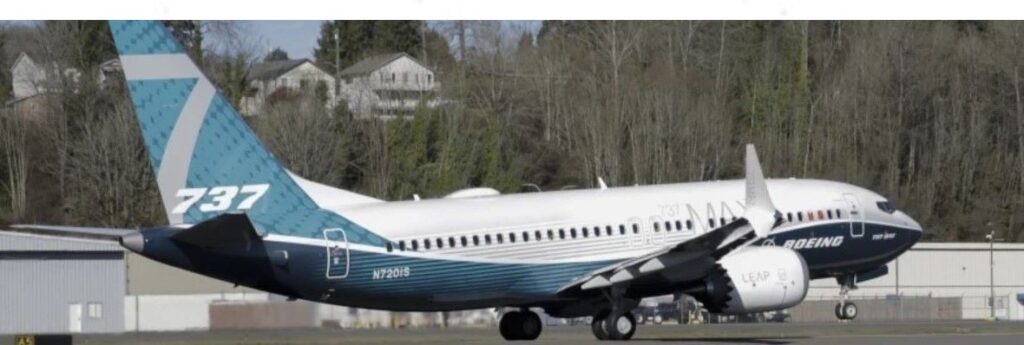Canadian air travellers will be largely unaffected by the grounding of Boeing’s 737 Max 9 airplane, but they may want to double-check their itineraries nonetheless. Some passengers could be booked on routes – notably those by Alaska Airlines and United – affected by the US Federal Aviation Administration order, which has grounded the aircraft.
The ruling, which came after part of the fuselage tore away from an Alaska Airlines plane Friday – leaving a gaping hole in the side of the cabin and prompting an emergency landing – left tens of thousands of passengers facing cancellations south of the border, with 171 planes temporarily barred from takeoff.
No Canadian airlines operate the Max 9, but some of the big carriers have partnerships with Alaska Airlines and United Airlines, which include the narrow-body jets among their fleets. Alaska has 65 Max 9s – 28% of its fleet – and United has 79, or 8% of its plane tally.
WestJet and Alaska have an interline agreement, allowing travel across different networks on a single reservation. Air Canada and United have a codeshare deal that lets passengers book trips with either carrier to about 50 destinations in the US and Canada, with hundreds of flights per day.
United said it expected to cancel 200 flights on Monday alone, and hopes to rebook passengers on other trips.
“We’re continuing to avoid some cancellations by using other aircraft types whenever possible,” the airline said in an email.
The scale of the ripple effect will hinge on whether the problem is a one-off or the product of a systemic flaw, said John Gradek, who teaches aviation management at McGill University.
“If it’s systemic across the Max 9 fleet, this could take a while,” Gradek said, with tough repercussions for carriers that depend on the jet. “This airplane’s a workhorse for Alaska.”
Alaska cancelled 21% of its flights Sunday and United nixed 9%, with similar proportions so far Monday, according to tracking service FlightAware. The figures currently put the airlines in the top two spots for percentage of flights cancelled in the US and Canada.
All 171 of the grounded planes will have to pass inspection before they can return to the skies, the FAA said Saturday.
The grounding marks another hit against Boeing’s reputation after the 737 Max 8 airliner was grounded for 20 months in 2019 and 2020, costing the US jet maker billions of dollars and raising questions about its reliability.
“People should be concerned about the Boeing culture,” Gradek said.
He suggested that Boeing’s recent problems may stem from its decision to keep rolling out new planes that largely adhere to a 55-year-old design, rather than starting afresh.
“This has been Boeing’s strategy of late – if it ain’t broke, why tinker with it,” Gradek said, adding, “This was a strategy by Boeing not to spend any money doing what I call a blank-piece-of-paper airplane,” which requires a greater investment of time and cash.

